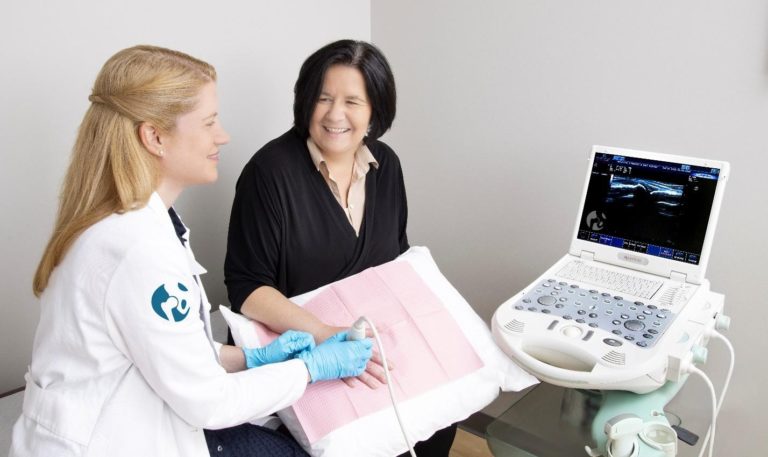POLYMYALGIA RHEUMATICA
Comprehensive Polymyalgia Rheumatica Treatments and Support
Every morning, the stiffness and discomfort of polymyalgia rheumatica can make simple tasks seem insurmountable. At Arthritis, Rheumatic & Bone Disease Associates, we believe in turning those challenges into victories through compassionate care that focuses on your health and well-being.
Our board-certified rheumatologists work closely with patients to create individualized polymyalgia treatment plans that combine medication, lifestyle adjustments, and supportive therapies. By incorporating the latest advancements in steroid treatment and biologic medication, we aim to reduce inflammation and restore mobility. Moreover, we also emphasize the importance of complementary physical therapy to improve strength and flexibility.
We’ve proudly served the South Jersey and Philadelphia communities for over 50+ years, yet our mission remains the same: to improve the quality of life for those living with PMR.
Expert Polymyalgia Rheumatica Treatment in New Jersey Is Just a Few Miles Away

Polymyalgia Rheumatica: Body Aches in Many Places
Polymyalgia rheumatica (PMR) is a systemic inflammatory disorder that usually affects older adults, most often between the ages of 70 and 80.
This condition, often marked by sudden onset of discomfort, involves the body’s immune system mistakenly attacking healthy tissues. The resulting inflammation typically causes pain and stiffness in large muscle groups like the shoulders, neck, and hips, making everyday tasks challenging. While this condition is distinct from rheumatoid arthritis, the overlapping symptoms emphasize the importance of early detection and proper diagnosis.
Symptoms include widespread achiness, joint pain, and stiffness that usually occur just after waking, as well as:
- Fatigue: Chronic inflammation often leads to a persistent feeling of exhaustion, impacting overall well-being.
- Swollen joints: Some individuals experience visible swelling, which can be mistaken for similar symptoms to those of other inflammatory arthritis conditions.
- Fever and weight loss: These systemic symptoms can indicate widespread inflammation and are crucial for accurate diagnosis.
- Jaw pain and headaches: Often linked with Giant Cell Arteritis, these symptoms may also involve double vision and require immediate attention.
The disorder occurs more frequently in women, and in 15% of individuals with PMR, a serious problem called giant cell arteritis (also called “GCA” or “temporal arteritis”) can also occur. Giant cell arteritis refers to inflammation in the temporal arteries on the side of the head, which can lead to blindness or stroke. Symptoms include headaches on the side of the head, a tender or hot scalp, vision changes, and jaw pain while eating.
What Causes Polymyalgia Rheumatica?
To date, clinical research has not identified a single underlying cause of PMR. However, there have been genetic markers that have been shown to increase the likelihood of developing PMR and GCA.
Risk factors include the immune system malfunctioning, genetic predisposition, an infection that triggers PMR, or a natural byproduct of the aging process. Genetics, in particular, play a role, as individuals with a family history of inflammatory arthritis may have a higher risk.
Our comprehensive understanding of PMR helps us focus on treating polymyalgia rheumatica effectively while mitigating its impact on patients’ lives.
How Is PMR Diagnosed?
Rheumatologists have specialized training and experience to expertly diagnose and treat individuals with PMR. Obtaining an accurate diagnosis starts with a physical exam, a family and medical history, and blood tests to check for inflammation (including C-reactive protein, rheumatoid factor, and others) to rule out rheumatoid arthritis or lupus.
PMR often mimics similar symptoms seen in other conditions like rheumatoid arthritis, which is why laboratory tests are crucial in diagnosing PMR. Blood tests measuring markers such as C-reactive protein and erythrocyte sedimentation rate (ESR) help confirm inflammation. Imaging techniques, like ultrasound, may also be used to rule out other conditions. These comprehensive diagnostics ensure that our patients receive the most appropriate polymyalgia treatment plan.
Importance of Early Detection and Treatment
Early detection of polymyalgia rheumatica is key to preventing complications and managing symptoms effectively. If you feel the sudden onset of muscle pain and stiffness in the shoulders and hips, reach out to an ARBDA rheumatologist immediately. We may start you on a low-dose steroid treatment early to reduce inflammation and improve mobility.
Potential Complications of Untreated PMR
Leaving polymyalgia rheumatica untreated can result in serious complications that significantly affect quality of life. Persistent inflammation may lead to conditions like giant cell arteritis, which causes severe headaches, jaw pain, and even vision loss, such as double vision. These symptoms require immediate attention to prevent irreversible damage.
Long-term use of medications without proper monitoring can increase the increased risk of conditions like high blood pressure, bone loss, and weight gain. Patients who do not address the condition early are more likely to experience symptoms returning, leading to chronic discomfort and mobility issues. Proper treatment and follow-up care are critical to mitigating these risks.
olor sit amet, consectetur adipiscing elit. Ut elit tellus, luctus nec ullamcorper mattis, pulvinar dapibus leo.
What Are the Treatments for Polymyalgia Rheumatica?
Reducing inflammation and the symptoms it causes is a critical component of polymyalgia rheumatica treatment. Corticosteroids such as prednisone are highly effective medications for this task. Your physician will provide explicit instructions on how to increase steroid dosages and later reduce them as symptoms are alleviated. Over-the-counter medications such as naproxen (sold under the brand name ALEVE®) or ibuprofen may also be recommended to reduce pain and inflammation.
Furthermore, a targeted biologic medication called ACTEMRA® (tocilizumab) has been shown to be more effective than steroids alone in helping patients with giant cell arteritis.
Role of Physical Therapy in PMR Treatment
While medication is central to treating polymyalgia rheumatica, incorporating physical therapy is essential for improving overall functionality. Customized exercise programs focus on reducing stiffness, enhancing strength, and promoting joint flexibility so that patients can regain independence in daily activities.
Physical therapy also helps mitigate potential side effects of steroid treatment, such as bone loss. By targeting areas prone to weakness, therapy can help maintain bone density and prevent complications like fractures.
